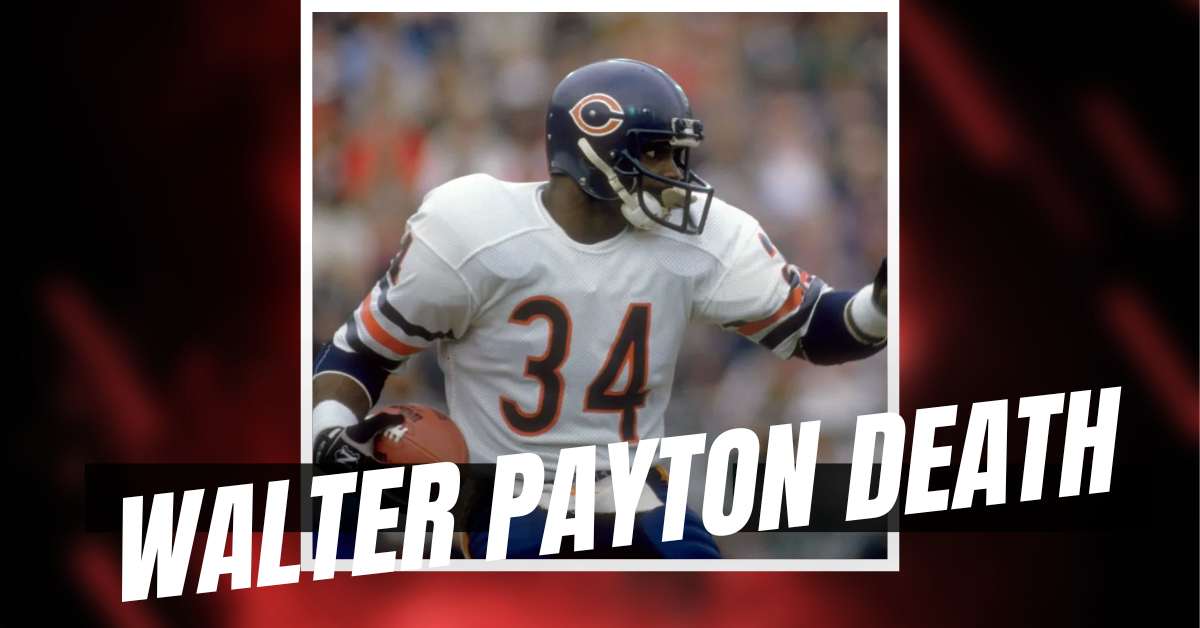Walter Payton, the legendary quarterback for the Chicago Bears, was nicknamed “Sweetness,” but an upcoming biography reveals that he also had a shadowy side.
Jeff Pearlman’s book “Sweetness: The Mysterious Life of Walter Payton” has an excerpt that says the Hall of Famer was suicidal, abused painkillers, and had a family that was falling apart.
In the mid-1990s, Payton was depressed and thought about killing himself. He had retired after the 1987 season as the NFL’s all-time leading rusher. Pearlman talks about a letter that Payton wrote to a friend in which he said that he imagined killing the people around him and then turning the gun on himself.
Payton’s longtime agent, Bud Holmes, said, according to SI.com –
“Walter would call me all the time saying he was about to kill himself, he was tired.”
“He was angry. Nobody loved him. He wanted to be dead.”
Ginny Quirk, who works as Payton’s executive assistant, said the same thing. She said –
“He would call and say, ‘You won’t see me when you get to the office tomorrow'”
“‘Enjoy life without me.'”
In November 1999, Payton died of a rare liver disease and bile duct cancer. The book says that Payton used pain pills and liquids to deal with injuries while he was playing, and he kept doing this after he stopped playing.
Pearlman heard from sources that Payton mixed Tylenol and Vicodin together and kept tanks of nitrous oxide in his garage. Holmes said –
“Walter was pounding his body with medication.”
“I wish I knew how bad it was, but at the time I really didn’t.”
According to the book, Payton went to the dentist in 1988 because his teeth hurt. He got a few prescriptions for morphine, but at least one pharmacist thought something was wrong and called the police.
Officers went to see Payton, but all he got was a warning. The book says that Payton’s life was confusing even when things seemed to be going well.
We have also reported on the passing of other notable figures who may pique your interest:
- Eric J. Lawrence: How Did He Die? Find Out Everything About What Killed Him And How He Died.
- Mama Cax: How Did She Die? Learn Why Today’s Google Doodle Honors Haitian-American Model.
Since he retired, Payton had been living apart from his wife, Connie, but he hadn’t told anyone because he wanted to protect his children and his reputation.
When he was inducted into the Pro Football Hall of Fame in 1993, he had been seeing a woman for five years, and both of them came to the ceremonies. Quirk, who was charged with keeping the women apart said –
“The introduction into the Pro Football Hall of Fame is supposed to be the greatest moment in his life.”
“And in truth, it was probably the worst. … Four full days, and Lita (not the real name of Payton’s mistress) and Connie were like two ships passing in the night. If Connie was scheduled to come late, I’d make sure Lita was there early. If Connie was there early, Lita would be there late. I can’t describe the horror of that trip.”
Still, the women did end up getting together. Holmes said, according to the excerpt –
“I introduced the two of them, and they sat and talked for quite a while.”
“They were friendly, chatty. There was no hair-pulling. It was very civil.”
Connie had asked for the meeting, and according to Holmes, told Lita –
“You can have him. He doesn’t want me or the children.”
Connie Payton, Walter Payton’s family, and the Walter and Connie Payton Foundation said in a statement that “Walter, like all of us, wasn’t perfect.” The statement was printed in the Chicago Tribune.
But the statement went on to say that some parts of the book might not be true.
“The challenges he faced were well known to those of us who loved and lived with him.”
“He was a great father to Jarrett and Brittney and held a special place in the football world and the Chicago community. Recent disclosures — some true, some untrue — do not change this. I’m saddened that anyone would attempt to profit from these stories, many told by people with little credibility.”
Even though the book has stories about depression and personal chaos, it also shows Payton’s brave side. Payton spent his last months hosting former Bears, even though he knew he was going to die.
According to the book, Hall of Famer Mike Singletary said –
“I never heard him say, ‘Why me?'”
“I know I would have been saying, ‘Why me? Why me? There are other guys out there killing people — why me?’ I never heard Walter say that.”
Jimbo Covert, who used to play offensive line for the Bears, was also amazed by Payton’s grace under pressure. He said –
“I was there with about 30 other guys.”
“Walter took time to go around to everybody personally and grab him and say, ‘What are you doing?’ — just getting the down low on how you’d been. Can you imagine how strong a person he had to have been to do that? He knew he was going to die.”

Leave a Reply